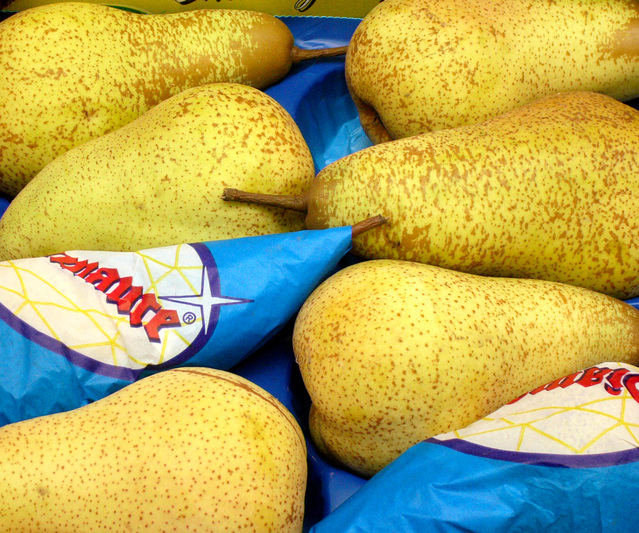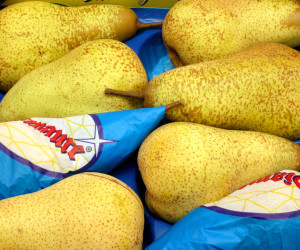
SICKLE CELL AND PEARS
As I was searching and researching about what to write about, I looked into food rich in fibre and I noticed that I have already written an article on this, that you can check out on the search button.
But as I was looking through the various fruits and vegetables and legumes, I came across pears. Most people love pears and I decided it deserves it’s own post. If there is something that I personally deal with quite a lot, as a result of Sickle Cell, its constipation and my stomach being bloated.
I wrote about prune or prune juice last month regarding a fruit or drink that will keep your bowels moving.
Another such fruit, are pears:
There are over 3,000 types of pear across the world. They vary by size, shape, sweetness, and crispness. They are juicy and sweet.
Pears are a mild, sweet fruit with a fibrous centre. They are rich in important antioxidants, flavonoids, and dietary fibre and pack all of these nutrients in a fat-free and cholesterol-free.
The easiest way to increase fibre intake is to increase the consumption of fruits and vegetables. While a single serving of pears provides 18% of the daily requirement for fibre intake, they can be a very strong agent for improving digestive health too. Most of the fibre in pears is a non-soluble polysaccharide (NSP), which means that it acts as a bulking agent in the intestines. This fibre accumulates the food and adds bulk so it is easier for the food to pass through the intestines. Furthermore, it stimulates secretion of gastric and digestive juices. It also regulates bowel movements and reduces the chances of constipation, as well as diarrhea and loose stool. Also, the gritty nature of pear fibre helps it bind to cancer-causing agents and free radicals in the colon and protect the organ from their damaging effects.
The health benefits of pears include their ability to aid in improve digestion and heart health, regulate the body’s fluid levels, and reduce blood pressure. They also increase the cognitive ability, prevent cancer, and promote wound healing and tissue repair. Pears help to defend against birth defects, boost the immune system, and reduce inflammation. They increase the metabolism, improve circulation, protect against osteoporosis and aid in skin, eye, and hair care.
Like many other fruits, pears are a wealth of antioxidants that combat various diseases and conditions within the body. Antioxidants work to eliminate the free radicals that accumulate in the body following cellular metabolism. These free radicals mutate healthy cell DNA into cancerous cells and can cause a number of other devastating conditions. Therefore, antioxidant components of vitamin C, vitamin A, and flavonoid compounds like beta-carotene, lutein, and zeaxanthin, all of which are found in pears, can help rid the body of these dangerous compounds.
Eating one medium pear provides 12 percent of daily vitamin C needs, as well as 10 percent of vitamin K, 6 percent of potassium and smaller amounts of calcium, iron, copper, magnesium, riboflavin, vitamin B-6, and folate. Besides their availability and flavor, pears have also been valued for their medicinal benefits for thousands of years. Modern science now tells us that the mineral, vitamin, and organic compound content of pear species is the reason for its vast health potential. Some of these active and effective components are potassium, vitamin C, vitamin K, phenolic compounds, folate, dietary fiber, copper, manganese, magnesium, as well as B-complex vitamins.
Pears are rich in antioxidants and vitamin C that are beneficial for the immune system, as they stimulate white blood cell production. They have also been known to boost the immune system, which helps to eliminate conditions like common cold, flu, and other mild illnesses.
Vitamin C is also an essential part of synthesizing new tissue in various organs and cellular structures of the body. This keeps the body’s metabolism running smoothly and ensures that all functions operate properly. Furthermore, wound healing is sped up with high levels of ascorbic acid, which pears do provide. It also helps to repair damaged blood vessels, which reduces the strain on the cardiovascular system and prevents certain heart diseases from developing.
For patients suffering from anemia or other mineral deficiencies, pears can be very helpful, due to a high content of copper and iron in them. Copper facilitates and improves the uptake of minerals into the system, and increased levels of iron mean that the red blood cell synthesis increases. Iron is an important part of hemoglobin, and anemia is another name for iron deficiency. You can prevent fatigue, cognitive malfunction, muscle weakness, and organ system malfunction by consuming foods high in iron and copper, both of which are found in significant amounts in pears.
Pears do not ripen while on the tree. For the best flavour, allow pears to ripen in a warm, sunny area for several days or until the neck of the pear yields to pressure. Refrigeration stops the ripening process.
Fruits, like apples and pears, contain a higher amount of fructose compared with glucose.
www.organicfacts.net
www.medicalnewstoday.com







